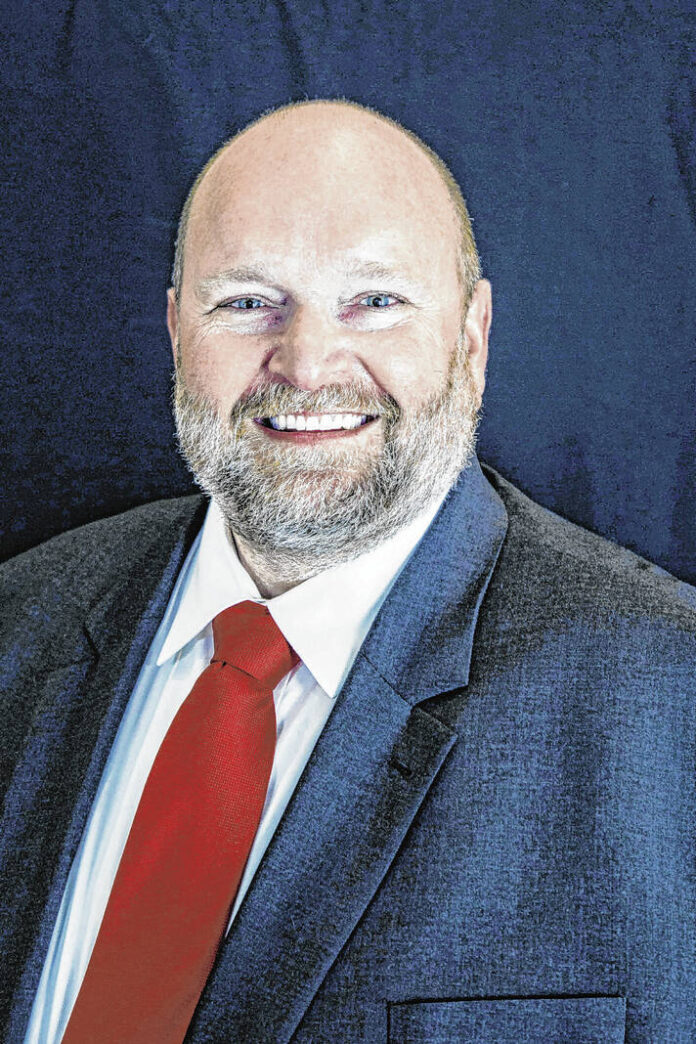It’s 8:52 on Saturday night and my internet is stuck. The spinning wheel of death has reared its ugly head. It will continue spinning till almost midnight.
That means the internet is connected, but is so clogged with other customers and devices, it’s rendered unusable. This is not unusual. I live in a rural area of Bartholomew County.
Access to high-speed internet is no longer a luxury. The pandemic’s arrival (and subsequent shutdown) proved that it is a necessity. The internet is where we learn, work, meet with doctors, shop, communicate with friends/family, and, yes, entertain ourselves.
In late 2020, commissioners Larry Kleinhenz, Carl Lienhoop and Rick Flohr took the first step in improving countywide internet access. They created The Bartholomew County Broadband Initiative to study the issue. They named me chairman. When I took office as commissioner on Jan. 1, 2021, with the full support of commissioners Kleinhenz and Lienhoop, we hit the ground
running. We enlisted Dr. Roberto Gallardo of Purdue University and Scott Rudd, former director of Indiana broadband development. They helped us develop and put out a survey to all county residents. The results showed us that the problem was much bigger than we realized.
There were (and still are) thousands of homes in the county that either have very poor access or no access at all.
The commissioners immediately began meeting with internet service providers huge and small. However, they all shared a common roadblock. The potential return did not justify the investment. The reason was because houses are not close enough together in the country. While there may be 50 houses each mile in the city, there may only be five in the country. They all told us they were sympathetic, but basic economics limited them.
We needed a different approach and we needed it fast.
It was around this time that we were approached by a company called Meridiam. They were not an internet service provider. They were an infrastructure investment company that had built tunnels, dams, bridges and roads all over the world.
Understanding the complexities of public-private partnerships, Meridiam had a different approach. Their model was based on a 25-year return on investment, not a five-year return. The 25-year return meant that the project was feasible, but there was still a lot of work to do to extend gig-speed fiber.
Gig speed means 1 gigabit, or 1,000 megabits. I currently have service that provides 24 megabits download speed. The higher the number, the faster the service. If 24 megabits is a 2-inch-water pipe, gig-speed fiber is a
river 15 miles wide. Fiber is non degrading, can be buried or strung on poles, and is impervious to weather. In 40 years, while they may change the electronics that power the fiber to increase bandwidth, they will not have to replace the fiber network itself. It is a “buy once and buy right” mentality.
The commissioners are dedicated to making sure that everyone and every business has an equal opportunity to participate when we consider a project. We were entering uncharted waters with this project. Ultimately, we chose a familiar path to decision making. Because we were attempting to “bridge” the digital divide for our citizens, we decided to follow the process we use in building a bridge.
We put out a request for proposals to all companies that wanted to bid. We wanted gig-speed fiber to the home. We wanted 24/7 support and local access to customer service. We wanted local people employed to build the network whenever possible. And while there would be no local tax dollars involved in this project, we would pledge $4 million of our American Rescue Plan allotment to the project, but only after 80% of the project was complete to our
satisfaction.
It was a tall order. We received three proposals, two of which met our specifications. To objectively judge the proposals, we again called on Scott Rudd, who is the leading expert in Indiana on this subject. He suggested a blind judging of the proposals by experts and stakeholders. Both proposals were fantastic, with the winner being Meridiam.
Now, we are at the finish line of this transformative project. In order to get started, Meridiam needs, and is asking the Bartholomew County Council for, a tax abatement. Without the abatement, the project cannot go forward, as it would add hundreds of thousands of dollars to the cost every year. Without the abatement, the investment is no longer feasible.
The commissioners wholeheartedly support this abatement. While we realize tax abatements are not always popular, and are typically reserved for companies moving to town and bringing jobs, this is a unique situation. This tax abatement will actually help thousands of our citizens immediately, and it will cost us nothing. If council denies the abatement, we will continue to receive no tax dollars for this project. But if they approve the abatement, we will begin to receive somewhere between $5,000 and $10,000 in tax dollars every year going forward, with no added stress on our resources.
County Council will consider this request at their meeting on Monday, Sept. 12, at 6 p.m. in their chambers located in the Government Office Building, 440 Third St., Columbus. With their approval of the abatement, the project can begin as soon as possible. If you share the belief that high-speed internet is a necessity regardless of where you live, please consider attending this critical meeting to let your voice be heard.
Tony London is a Bartholomew County Commissioner. Send comments to [email protected].





